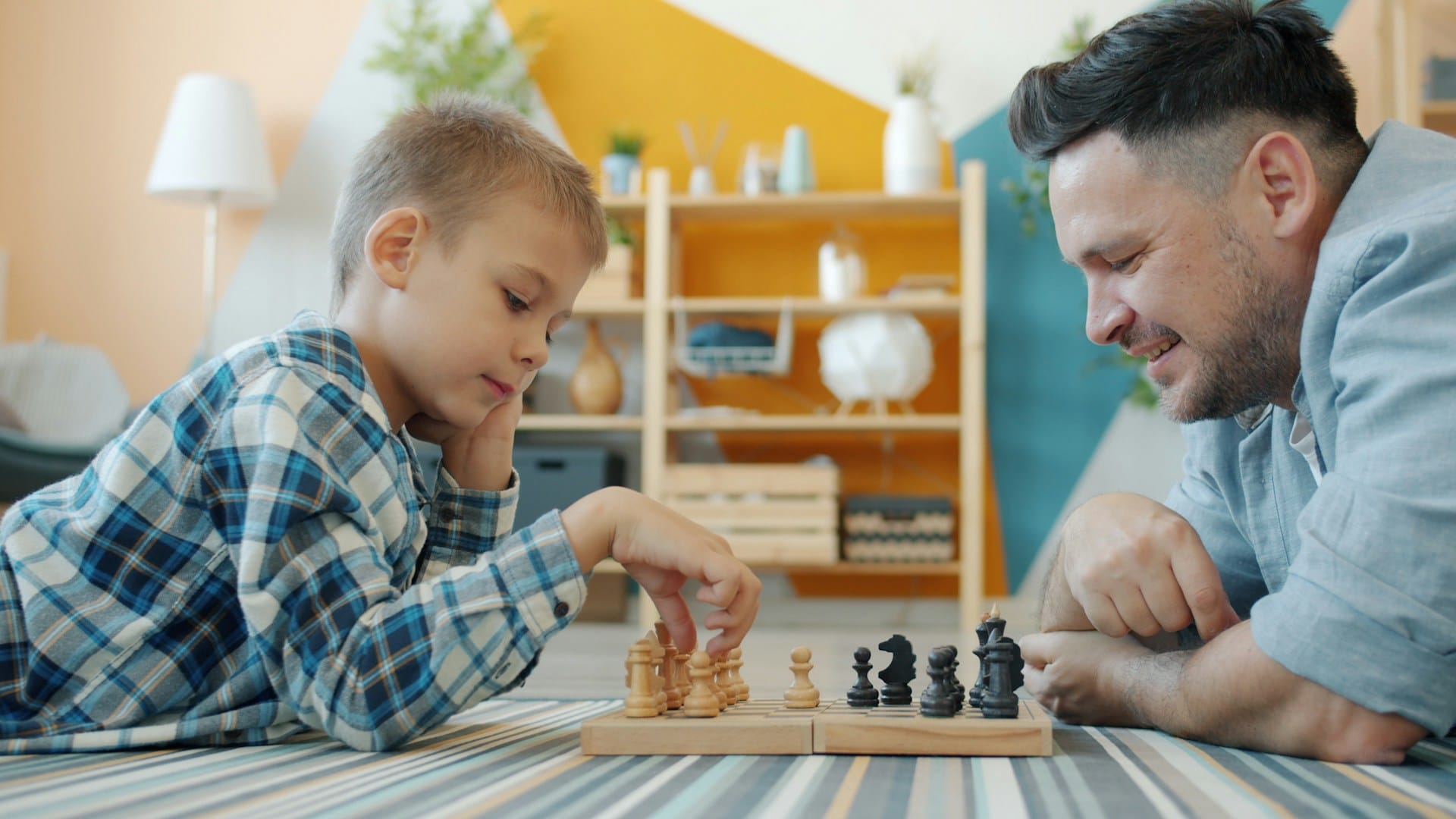When is enough, enough? It could be said that we have an insatiable appetite for more in just about every area of our lives. We desire to break existing records and go faster, further, longer, or bigger. We desire to see more, be more, do more, have more. There’s a proverb that says, “Death and Destruction are never satisfied, and neither are human eyes” (Proverbs 27:20, NIV).
That thirst for more drives us to innovate and invent creative solutions to existing problems. It allows us to understand God’s creation, including ourselves, better. However, the flip side is that our desire for more can lead us to try to satisfy it inappropriately, like trying to satisfy our thirst with foul water or our hunger with spoiled food. One of the ways we try to satisfy our deep thirst and hunger for more is through materialism.
Materialism
Materialism is when we prioritize owning or possessing things as a high or the highest value. It is measuring your self-worth by external markers such as your bank account, the luxury items you own, or whether you satisfy societal beauty standards. You are validated and worthwhile to the extent that you possess certain objects and material possessions, and this is often at the expense of other qualities.
Materialism can be subtle, showing up in small ways such as feeling as if you don’t belong somewhere because you aren’t dressed as well as the other people around you. Or it could be the thought that if only you possessed this or that item, you’d be happy and fulfilled. Materialism can also be full-blown, overtaking your life and becoming the focus of your energies and sense of self. Frisco Christian Counseling can help you explore these patterns and realign your values with what truly matters.
How Materialism Can Affect You
 If you are important or valuable because of what you own, what happens when what you own gets old, is stolen from you, or destroyed somehow? If you tie your self-worth to your possessions or seek happiness through the acquisition and consumption of things, and your focus is on superficial appearances, it sets you up for a life of increased stress, anxiety, and possibly depression.
If you are important or valuable because of what you own, what happens when what you own gets old, is stolen from you, or destroyed somehow? If you tie your self-worth to your possessions or seek happiness through the acquisition and consumption of things, and your focus is on superficial appearances, it sets you up for a life of increased stress, anxiety, and possibly depression.
Products and things, including whatever is in season or hot at the moment, are constantly moving targets. The way much of our consumer economy works is by generating a desire for more things, convincing you that you aren’t happy until you own Product X. There are massive societal and cultural pressures that drive this message home, multiplied and sustained by media and constant advertising.
The trouble is that there’s always a newer thing, a more daring and attractive look, a must-have that somehow you’ve managed to live without all these years, but now can no longer do without.
This isn’t to downplay innovation and real advances that better our lives. However, it does raise questions about the seeming necessity and urgency that buffet us as we constantly chase possessions and put our hard-earned dollars into them, only to need version 2.0 next year.
Instead of giving us greater satisfaction and happiness, our acquisition and consumption of more and more things often decreases it. We work longer hours to afford these things, potentially weakening our interpersonal relationships in the process. We set ourselves up for disappointment when that new thing quickly starts to feel exactly like the old thing we were trying to replace.
It is incredible to witness how easily we become jaded and want the next thing. Have you ever noticed when you first acquire something – a home, a phone, a hotel room for the weekend, a beautiful cabin for a vacation – you notice the amazing things about it, and you’re in awe? A little while later, that awe fades, the extraordinary seems ordinary, and our eyes see something else that looks newer, shinier, more desirable.
The allure and lie of the idea that bigger, more, and different is better has captured our imaginations. It’s not just an American thing, but part of a global culture of greater consumption and assuming that having more is the means to happiness. We are also often caught by pride in a never-ending competition with others. C.S. Lewis once spoke about pride as leading to other vices. He said the following:
Pride gets no pleasure out of having something, only out of having more of it than the next man. We say that people are proud of being rich, or clever, or good-looking, but they are not. They are proud of being richer, or cleverer, or better-looking than others. If everyone else became equally rich, or clever, or good-looking there would be nothing to be proud about. It is the comparison that makes you proud: the pleasure of being above the rest – C.S. Lewis, Mere Christianity
Moving Toward Minimalism
We need to get ourselves out of the frame of thinking that what we have is what makes us and our lives worthwhile. Pride, the pleasure of being above the rest, as Lewis reminded us, can often be the fuel behind our materialistic pursuits. One path to help address materialism is through minimalism.
The idea of minimalism isn’t new. Marie Kondo blew up the internet and media waves a few years ago and helped many people reorganize and rearrange their homes to reduce anxiety and feel more at home when at home. Sometimes, the presence of so much stuff in our lives doesn’t soothe us or bring us joy – sometimes we hold onto things out of insecurity or a fear of lack.
However, long before that, the apostle Paul wrote this to a young pastor and his protégé named Timothy:
But godliness with contentment is great gain. For we brought nothing into the world, and we can take nothing out of it. But if we have food and clothing, we will be content with that. Those who want to get rich fall into temptation and a trap and into many foolish and harmful desires that plunge people into ruin and destruction. For the love of money is a root of all kinds of evil. Some people, eager for money, have wandered from the faith and pierced themselves with many griefs – 1 Timothy 6:6-10, NIV
There is nothing more minimal than remembering that we bring nothing into the world with us, and we can take none of it with us when we die. In many cultures across time, people have tried to hold onto the idea that they should be buried with their precious possessions because they’ll need and use them in the next life. Paul’s words directly contradict this.
Even before Paul wrote his letter, there was another ancient who, in the face of great calamity, expressed his response to the calamity of losing his wealth and his children in this way:
At this, Job got up and tore his robe and shaved his head. Then he fell to the ground in worship and said: “ Naked I came from my mother’s womb, and naked I will depart. The Lord gave and the Lord has taken away; may the name of the Lord be praised.” In all this, Job did not sin by charging God with wrongdoing – Job 1:20-22, NIV
The grief of a parent losing his child overwhelmed him, and Job wept for his children. In this moment, he maintained an awareness of how fragile life is, and how what we have one moment can be lost so easily the next.
Jesus warned us to consider how we spend our lives, warning us by saying: “Be on your guard against all kinds of greed; life does not consist in an abundance of possessions.” (Luke 12:15, NIV).
After telling His disciples not to worry about things such as what they will wear, or eat, or even about their lives, He says this:
“Do not be afraid, little flock, for your Father has been pleased to give you the kingdom. Sell your possessions and give to the poor. Provide purses for yourselves that will not wear out, a treasure in heaven that will never fail, where no thief comes near and no moth destroys. For where your treasure is, there your heart will be also.” – Luke 12:32-34, NIV
It’s important to recognize that Jesus isn’t saying don’t worry about these things because they don’t matter. Several times He says we are “valuable” and matter to God. He also says:
“And do not set your heart on what you will eat or drink; do not worry about it. For the pagan world runs after all such things, and your Father knows that you need them. But seek his kingdom, and these things will be given to you as well” – Luke 12:29-31, NIV
It isn’t that these things don’t matter or that God doesn’t care about these needs. Jesus says God knows we need these things. The issue is that we set our hearts on these things. We become so preoccupied with our stuff that we crowd out God and His concerns.
The things we clamor for, claw our way up the social ladder for, betray friends and our morals for, judge our self-worth by, and accumulate only to leave behind when we die – these things aren’t what we should set our hearts upon.
The path toward minimalism isn’t just pursuing a lifestyle because it’s the in thing. Having less and needing less means we can free up our resources to love and serve others with our excess (Ephesians 4:28). It means your joy isn’t tied to your bank account or zip code, or where you sourced your furniture. It’s about nourishing your soul with what truly matters, and what will last for eternity.
With the help of a Christian counselor from Frisco Christian Counseling, you can work through anxieties you have about what you own, what you root your identity in, and how to build up a sense of self-worth that isn’t tied to what you own or other externals. You can move from materialism toward a minimalism that nourishes your social, spiritual, and emotional well-being.
“Gray and Green rock”, Courtesy of Unsplash, Unsplash.com, CC0 License
- Kate Motaung: Curator
Kate Motaung is the Senior Writer, Editor, and Content Manager for a multi-state company. She is the author of several books including Letters to Grief, 101 Prayers for Comfort in Difficult Times, and A Place to Land: A Story of Longing and Belonging...
DISCLAIMER: THIS ARTICLE DOES NOT PROVIDE MEDICAL ADVICE
Articles are intended for informational purposes only and do not constitute medical advice; the content is not intended to be a substitute for professional medical advice, diagnosis, or treatment. All opinions expressed by authors and quoted sources are their own and do not necessarily reflect the opinions of the editors, publishers or editorial boards of Stone Oak Christian Counseling. This website does not recommend or endorse any specific tests, physicians, products, procedures, opinions, or other information that may be mentioned on the Site. Reliance on any information provided by this website is solely at your own risk.





